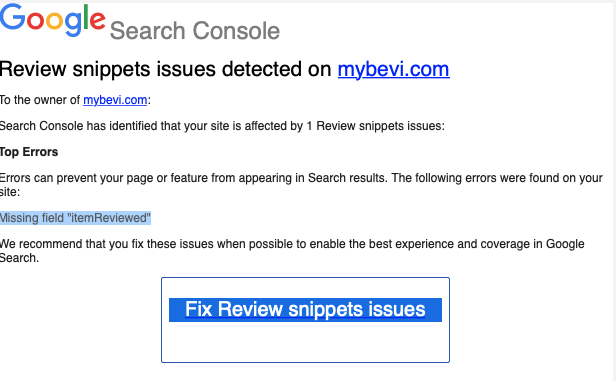As an e-commerce business owner, you know the importance of having a solid online presence to attract customers and generate sales. Keyword research is one of the most critical components of any successful online marketing strategy. Understanding which keywords your potential customers are searching for and incorporating those keywords into your website's content can significantly boost your visibility in search engine results pages (SERPs).
Understanding which keywords your potential customers are searching for and incorporating those keywords into your website's content can significantly boost your visibility in search engine results pages (SERPs).
However, conducting keyword research for e-commerce SEO can be a daunting task. With millions of potential keywords, it can be challenging to know where to start. This is where our ultimate guide to keyword research for e-commerce SEO comes in.
This guide will provide you with a step-by-step process for identifying and targeting the most effective keywords for your e-commerce website.
From understanding the different types of keywords to choosing the right tools for the job, we'll cover everything you need to know to conduct thorough keyword research for e-commerce SEO. We'll also provide tips for analyzing your competition and identifying long-tail keywords to help you stand out in a crowded marketplace.
Whether you're just starting with your e-commerce business or looking to take your existing SEO strategy to the next level, our ultimate guide to keyword research for e-commerce SEO will provide you with the tools and insights you need to succeed. So let's dive in!
Understanding the different types of keywords for e-commerce SEO
As an e-commerce business owner, understanding the different types of keywords for SEO can be the difference between success and failure. However, navigating SEO's technical jargon and its various components, including keywords, can be difficult.
We will explore the different types of keywords for e-commerce SEO and how understanding them can help you achieve your business goals.
What are Keywords for E-commerce SEO?
Keywords are phrases and terms individuals use when searching for products, services, or information on search engines. In e-commerce, keywords are used to optimize website content and improve search engine rankings, which can ultimately increase website traffic and sales.
Types of Keywords for E-commerce SEO:
Transactional Keywords: Transactional keywords indicate a user's intent to purchase. These keywords often include phrases such as "buy," "order," "checkout," or "discount."
Commercial Investigation Keywords: These are keywords that signal a user is in the research phase of the buying process. These keywords often include phrases such as "best," "top-rated," "reviews," or "compare."
Informational Keywords:
Informational keywords are used by users looking for information on a specific topic but not necessarily ready to make a purchase. These keywords often include phrases such as "how to," "what is," "guide," or "tutorial."
Navigational Keywords:
Navigational keywords are used by users looking for a specific website or brand. These keywords often include the name of the website or brand or related terms such as "login" or "support."
Why Understanding Types of Keywords is Important for E-commerce SEO:
Understanding the different keywords for e-commerce SEO is crucial because it allows businesses to tailor their content to match the user's intent. By identifying and targeting the appropriate keywords, companies can improve their search engine rankings and attract qualified traffic to their website.
Tools for Keyword Research:
There are several tools available to assist e-commerce businesses with their keyword research, including:
Google Keyword Planner:
A free tool that provides keyword suggestions and data on search volume and competition.
SEMrush:
A paid tool that offers advanced keyword research and analysis features and competitor research.
Ahrefs:
A paid tool that provides keyword suggestions, search volume and competition data, backlink analysis, and competitor research.
Moz:
A paid tool that provides keyword suggestions and data on search volume and competition, as well as website analysis and tracking.
Ubersuggest:
A free tool that offers keyword suggestions, data on search volume and competition, content ideas, and competitor analysis.
Choosing the right tools for keyword research
Keyword research is crucial to search engine optimization (SEO) and digital marketing. By identifying the right keywords, businesses can improve their website's search engine ranking, attract more traffic, and increase conversions. However, with so many keyword research tools available, knowing which one to choose can be challenging. In this blog post, we will explore the essential features of keyword research tools and how to choose the right tool for your business.
Features of Keyword Research Tools:
Keyword Suggestions: Keyword research tools should provide relevant and accurate keyword suggestions based on the user's search query.
Search Volume: The tool should provide data on the search volume of a keyword, indicating how frequently it is searched for.
Keyword Difficulty: The tool should estimate how difficult it is to rank for a particular keyword.
Competition Analysis: The tool should provide data on the competition for a particular keyword, including the website ranking for that keyword.
Cost: Keyword research tools may be free or paid. The price should be considered when choosing an agency.
Types of Keyword Research Tools:
Google Keyword Planner:
Google's free keyword research tool provides keyword suggestions, search volume data, and competition analysis. It is an excellent option for beginners.
SEMrush: A paid tool that provides keyword research, competition analysis, and backlink analysis. It is a powerful tool for advanced users and SEO professionals.
Ahrefs:
A paid tool that offers keyword research, competition analysis, and backlink analysis. It is a popular tool for SEO professionals.
Moz:
A paid tool that provides keyword research, competition analysis, and website tracking. It is an excellent option for businesses looking for an all-in-one SEO solution.
Ubersuggest:
A free tool that provides keyword research, search volume data, and competition analysis. It is an excellent option for businesses on a budget.
Choosing the Right Keyword Research Tool:
Determine Your Business Needs:
Consider your business's size, budget, and level of SEO experience when choosing a keyword research tool.
Research Your Options: Read reviews, compare features, and test out different tools before deciding on a keyword research tool.
Consider the Cost:
Evaluate the cost of the tool and determine if it fits within your budget.
Evaluate the Features: Choose an agency with the features you need to achieve your business goals.
Look for User-Friendly Interface: Choose a device that is easy to use and understand, even for beginners.
Analyzing your competition and identifying opportunities
In digital marketing, you must analyze your competition and identify growth opportunities. By examining your competitors' strategies, you can gain insights into their strengths and weaknesses and make informed decisions about your marketing efforts.
This section will discuss the importance of analyzing your competition, the key metrics to evaluate, and how to identify growth opportunities.
Why Analyzing Your Competition is Important:
Identify Gaps in the Market:
Analyzing your competition can help you identify gaps in the market that your business can fill.
Understand Your Target Audience:
By analyzing your competitors' target audience and messaging, you can gain insights into your target audience and improve your messaging.
Learn From Your Competitors' Mistakes:
Analyzing your competitors' mistakes can help you avoid making the same errors.
Evaluate Your Competitors' Strengths and Weaknesses:
You can improve your business strategy and gain a competitive advantage by analyzing your competitors' strengths and weaknesses.
Key Metrics to Evaluate:
Website Traffic:
Analyzing your competitors' website traffic can provide insights into their digital marketing strategy and help you identify potential growth opportunities.
Social Media Engagement:
Evaluating your competitors' social media engagement can help you identify popular trends and understand how to engage with your target audience.
Search Engine Rankings:
Analyzing your competitors' search engine rankings can help you understand their SEO strategy and identify potential areas for improvement.
Content Marketing:
Evaluating your competitors' content marketing efforts can help you identify popular topics and improve your content strategy.
Customer Reviews:
Analyzing your competitors' customer reviews can provide insights into their strengths and weaknesses and help you improve your own customer experience.
Identifying Opportunities for Growth:
Targeting Niche Markets:
Analyzing your competitors' marketing efforts can help you identify untapped niche markets you can target.
Improving Your SEO Strategy:
By analyzing your competitors' search engine rankings and keyword strategy, you can identify potential areas for improvement and optimize your SEO strategy.
Enhancing Your Customer Experience:
Analyzing your competitors' customer reviews can help you identify improvement areas and enhance your customer experience.
Exploring New Channels:
Analyzing your competitors' marketing efforts can help you identify new channels to explore and reach a broader audience.
Innovating Your Products or Services:
Analyzing competitors' strengths and weaknesses can inspire you to innovate and improve your products or services.
Targeting long-tail keywords for e-commerce SEO
Regarding e-commerce SEO, targeting long-tail keywords can be a highly effective strategy. Long-tail keywords are longer, more specific search phrases that often have less competition than broad keywords.
Targeting these keywords can attract highly relevant traffic to your e-commerce site and improve your search engine rankings. In this blog post, we will discuss the benefits of targeting long-tail keywords, how to find them, and how to optimize your e-commerce site for them.
Benefits of Targeting Long-Tail Keywords:
Higher Conversion Rates:
Long-tail keywords tend to be more specific, meaning that the users who search for them are often closer to the point of purchase. This can result in higher conversion rates for your e-commerce site.
Less Competition:
Long-tail keywords often have less competition than broad keywords, making them easier to rank for and potentially leading to higher search engine rankings.
Improved Relevance:
You can attract highly relevant traffic to your e-commerce site by targeting long-tail keywords. This can lead to better engagement and increased customer satisfaction.
Cost-Effective:
Targeting long-tail keywords can be a cost-effective strategy for e-commerce businesses, as broad keywords often cost more per click.
How to Find Long-Tail Keywords:
Use Keyword Research Tools:
Tools like Google Keyword Planner, Ahrefs, and SEMrush can help you identify long-tail keywords related to your products or services.
Analyze Your Site Search Data:
Your site search data can provide insights into the specific phrases your customers use to search for products on your site.
Monitor Social Media Conversations:
Social media can be a valuable source of long-tail keywords, as users often use specific phrases to describe their needs or problems.
Analyze Your Competitors:
Analyzing your competitors' keyword strategy can help you identify potential long-tail keywords to target.
How to Optimize Your E-Commerce Site for Long-Tail Keywords:
Create High-Quality Product Pages:
Creating high-quality product pages with descriptive titles and detailed descriptions can help you target long-tail keywords related to your products.
Use Descriptive URLs:
Using descriptive URLs that include your target long-tail keywords can help search engines understand the content of your pages.
Optimize Your Meta Data:
Including your target long-tail keywords in your meta titles and descriptions can improve your search engine rankings and click-through rates.
Use Header Tags:
Using header tags (H1, H2, H3) on your product pages can help search engines understand the structure and content of your pages.
Use Rich Media:
Including rich media like images and videos on your product pages can improve engagement and increase your search engine rankings.
Implementing your keyword research into your e-commerce SEO strategy
Keyword research is a critical component of any e-commerce SEO strategy. It helps you identify the search terms your target audience uses to find products or services like yours and allows you to optimize your website and content accordingly.
However, conducting keyword research is just the first step. To make the most of your research, you need to implement it effectively into your e-commerce SEO strategy. In this blog post, we'll discuss some essential steps you can take to implement your keyword research into your e-commerce SEO strategy effectively.
Organize Your Keywords
Once you've completed your keyword research, organizing your findings is essential. Group your keywords into categories based on their relevance to your products or services, and create a plan to optimize your website and content accordingly.
This will help ensure that your e-commerce site targets the right keywords and that your content is aligned with your overall SEO strategy.
Optimize Your On-Page Elements
Once you've organized your keywords, it's time to optimize your on-page elements. This includes page titles, meta descriptions, header tags, and content. Ensure your primary keywords are included in these elements, but avoid over-optimizing or keyword stuffing. Focus on creating high-quality, engaging content that provides value to your target audience.
Optimize Your Product Pages
Product pages are one of the most critical components of any e-commerce site. Ensure your product pages are optimized for your target keywords by including descriptive titles, detailed descriptions, and high-quality images.
Additionally, consider including user-generated content like product reviews to improve engagement and increase your search engine rankings.
Build Quality Backlinks
Backlinks are an important ranking factor for search engines. Consider implementing a link-building strategy to build high-quality backlinks to your e-commerce site. This can include guest blogging, broken link building, and outreach to relevant influencers in your industry.
Monitor Your Performance
Finally, it's essential to monitor your e-commerce SEO performance regularly. Use tools like Google Analytics and Search Console to track your search engine rankings, traffic, and conversions. Analyze this data to identify areas for improvement and adjust your strategy accordingly.
Conclusion:
In conclusion, implementing keyword research into your e-commerce SEO strategy is crucial to achieving success online. By organizing your keywords, optimizing your on-page elements and product pages, building quality backlinks, and monitoring your performance, you can improve your search engine rankings and attract more targeted traffic to your e-commerce site.
It's important to note that SEO is an ongoing process that requires constant monitoring, testing, and refining. Keep track of your website analytics and adjust your strategy to stay ahead of the competition.
Additionally, as search engines evolve and change their algorithms, staying up-to-date with the latest SEO trends and best practices is important. This can involve attending industry events, reading blogs, and following SEO experts on social media.
Ultimately, implementing your keyword research effectively into your e-commerce SEO strategy requires patience, persistence, and a commitment to providing high-quality, engaging content that meets the needs of your target audience. By following the steps outlined in this blog post and refining your strategy over time, you can achieve long-term success online and grow your e-commerce business.
Frequently Asked Questions (FAQ):
What are the different types of keywords for e-commerce SEO?
There are four keywords for e-commerce SEO: informational, navigational, commercial investigation, and transactional.
Which keyword research tools should e-commerce businesses use?
Several keyword research tools are available, including Google Keyword Planner, Ahrefs, SEMrush, Moz, and Ubersuggest.
How can e-commerce businesses analyze their competition for keyword research?
E-commerce businesses can use tools like SEMrush and Ahrefs to analyze their competcompetitors'rd strategies and identify gaps and opportunities.
Why are long-tail keywords important for e-commerce SEO?
Long-tail keywords are specific and targeted, allowing e-commerce businesses to reach highly qualified leads who are more likely to convert.
How can e-commerce businesses implement their keyword research into their SEO strategy?
E-commerce businesses can incorporate keyword research into their websitwebsite'snt, including product descriptions, category pages, and blog posts, and optimizing metadata and URLs.







